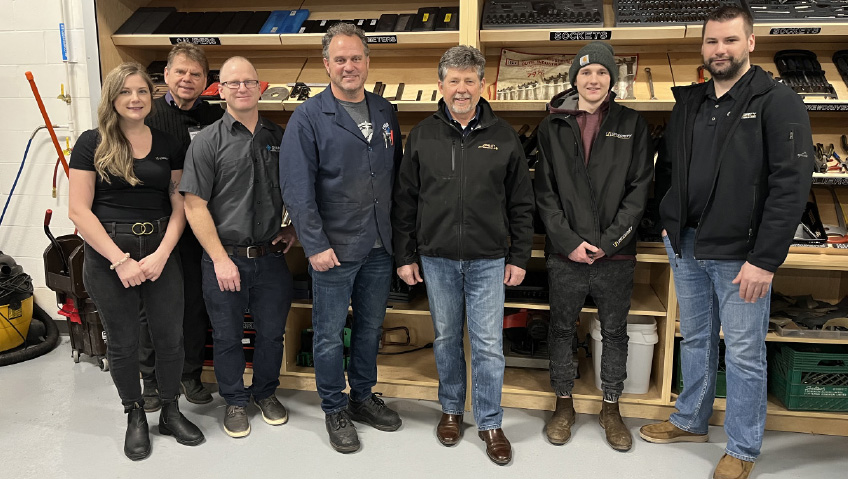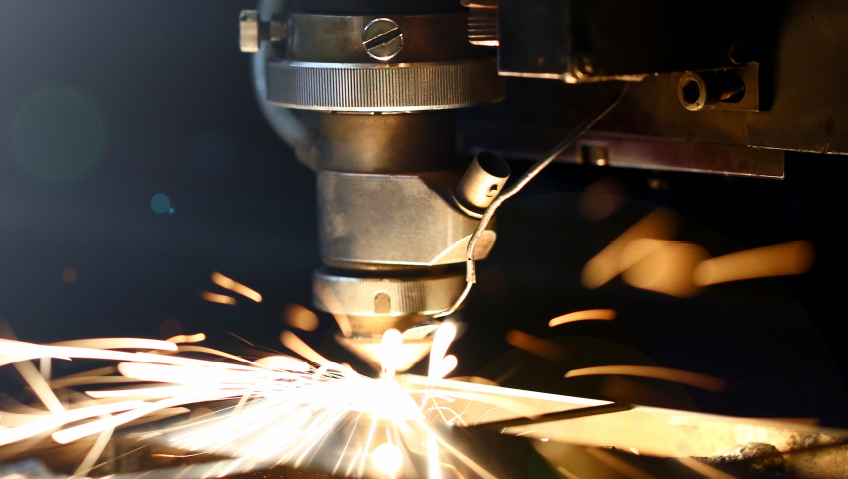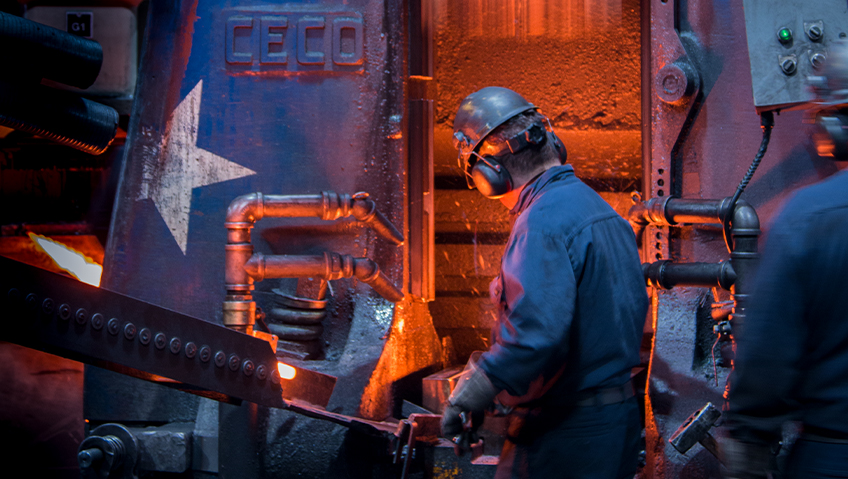The Canadian Tooling & Machining Association (CTMA) is dedicated to supporting the interests and promotion of the trades and industries of its namesake affiliations. It began operations in 1963 by uniting various trade associations into one organization, with the lasting goal of better representing the tooling industry in Canada. This includes businesses and service providers within the precision metalworking industry, including those that design, manufacture, repair, or assemble tools, dies, moulds, models, patterns, jigs, fixtures, gauges, machinery, machining systems, robotics, automation equipment, machine shop products, and cutting tools.
The Association has served as a trusted and vital part of the Canadian tooling industry for 60 years now.
According to CTMA Executive Director, Robert Cattle, a part-owner of the precision machining company MicroMetric and a CTMA member since the early 1970s, the Association has given him a stronger voice in the Canadian tooling industry as well as the opportunity to network with his peers, while providing that same voice to the tooling industry at large.
“Being part of an association helped me feel represented,” Cattle says of his early days in the industry. He explains that it can be difficult to get one’s work out to the public and to improve a company when launching and maintaining a brand necessitates a single-minded focus.
CTMA offers many additional benefits including plant tours and the Annual Wage and Business Survey which documents statistics like average pay, benefits, overtime, and more among the participating companies. CTMA Vice President, Louis Jahn, whose company Jahn Engineering has also been a long-standing member, emphasizes the promotional boost that the Association offers its members and how it enables sharing of common resources, technology, and industry knowledge.
Alex Mazerolle, a CTMA board member and the president of Archer Precision, adds that the organization’s support for members is excellent, as is its advocacy on behalf of the industry toward the Ontario government.
One of CTMA’s biggest initiatives is its Career-Ready with CTMA: Expanding Opportunities program, funded by the Ontario provincial government through the Skills Development Fund, a type of apprenticeship opportunity. Cattle describes the program as both significant and very successful. In fact, its initial success has allowed it to expand further within the past two years by building more contacts throughout the province.
This initiative—along with CTMA’s Apprentice Awards, which have been given out for decades, as well as the High School Awards, which were established in 2022—promotes career paths within the industry and outreach to schools and educational institutions.
“If we don’t expose high school students at a younger age [to] opportunities in the precision metal industry, how will they get exposed to it?” Cattle asks.
This has also led to the Association working even harder to keep tooling careers an option for interested young people, including helping to install computer numerically controlled milling machines (CNC machines) in nearby education centres like Ottawa Technical Secondary School as well as many other schools throughout Ontario. While a gesture like this is not inexpensive, it allows students to develop a hands-on understanding of how much the tooling industry has changed in recent decades.
Louis Jahn adds that the Ontario Youth Apprenticeship Program, a co-op style of student opportunity program, is another way in which CTMA is helping young people realize both the skills necessary to succeed in the trade but also the latent rewards and opportunities in the field.
Recruitment and retention are especially vital after the events of the past few years. During the most restrictive times of the COVID-19 pandemic, the manufacturing industry was considered essential and never really stopped working. Despite many challenges, CTMA saw its membership increase during this time and the trend continues today.
The Association was able to resume its regular in-person activities like its Annual General Meeting & Dinner—sporting the largest number of participants to date in 2022—and its yearly golf tournament, among others. These welcome returns are a sign of the tooling industry righting itself after a long period of doubt, especially as it continues to shift toward new trends.
Cattle and the CTMA staff have been privy to many industry changes over the past half-century, with a current change being an intensified focus being put on the automotive industry. The sector is going through notable changes, such as the switch to electric motors and hybrid vehicle models, and these will take decades to truly see in full effect. CTMA member businesses are involved in processes important to industries like these. “We are the tool and die makers, the mould makers, the machinists,” Cattle says, “We are the people who make the tools to make the parts.”
Industries like aerospace, defence, communications, and nuclear are consistently demanding more product from CTMA members, even more so in the wake of global events like the ongoing war in Ukraine. During this busy time, other factors will shape the industry, such as artificial intelligence (AI) and computerized technology. Louis Jahn says that in the automotive industry, AI will continue to be relied on for aspects like influencing how products will look, and more processes continue to be run off computers than ever before.
These developments favour the fortunes of young workers who are already familiar with computerized learning and development and further open opportunities for underrepresented populations in technical fields. There is another push within the industry toward greater roles for women, and technical trades are no longer a male-dominated industry as more women enter every year with skill sets that are much better suited for modern industry.
Traditional manufacturing technology is now being handled in lower-cost countries like South Korea, China, or India, and this continues to affect manufacturing in North America. It is providing a new challenge in which, with traditional businesses being run offshore, companies can find that there are not enough trained technicians in the business back home.
As 2023 unfolds, a very interesting development in local Ontario education will see high school students have to complete a mandatory technical course, a development Alex Mazerolle feels is huge for the industry. The CTMA board will soon be meeting to see what this announcement means for the industry at large and for the evergreen goal of building a pipeline from education centres to the sector.
The Association is “very encouraged by this news and the willingness of ministers to engage with CTMA and its members to understand the industry’s needs,” Mazerolle adds. The priority of addressing this comes second only to continued expansion and funding of the Career-Ready program, especially with the momentum gained by new members and increasing engagement levels.
CTMA is currently celebrating its 60th anniversary, which Cattle admits is a big deal within the Association and a huge achievement for the industry overall. “You don’t survive for 60 years unless you’re providing a service that’s needed and valued.”
Mazerolle feels that Robert Cattle has been a fantastic leader and that this anniversary is a testament to the strength of the Association’s leadership over the past several decades. Its members are extremely grateful for the hours that Cattle and his team have put into rolling out programs and answering questions. The organization is staying true to the core values with which it started, and it will continue to refresh its focus on these in the future.






